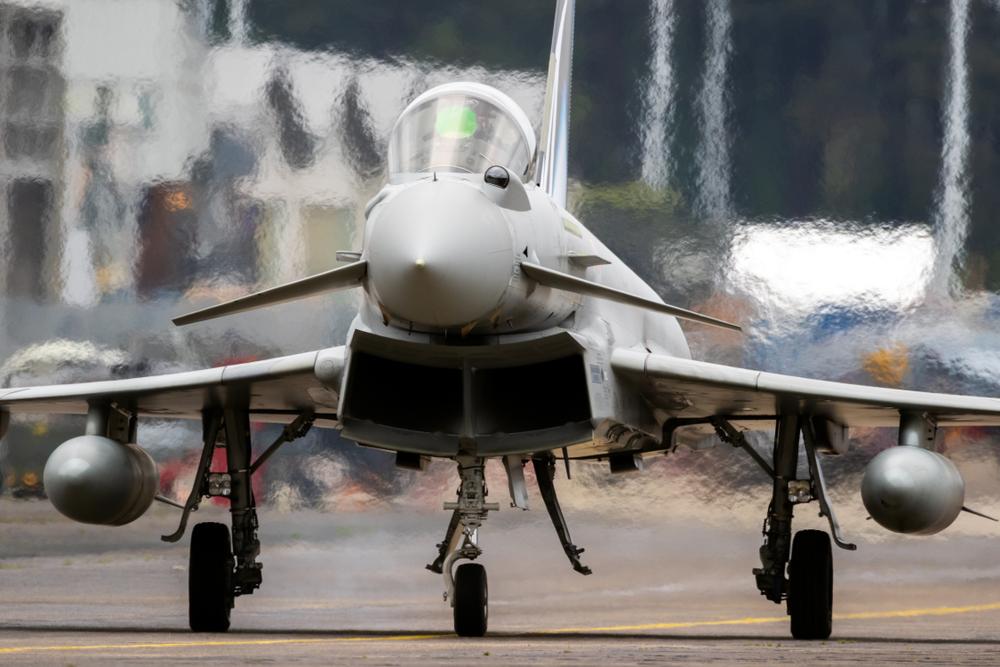Aerospace and defence manufacturing firm, BAE Systems (LON:BA), watched its shares continue their upward climb on Friday, following the government’s announcement of a £16.5 billion injection into the Defence budget.
While in real terms the boost will actually increase the Defence budget by £7 billion (according to the IFS’s Ben Zaranko), that amount is certainly significant. And, according, to prime minister Boris Johnson, the new money will protect “hundreds of thousands of jobs”, create 40,000 new jobs, and allow UK Defence capabilities to undergo a ‘once-in-a-generation modernisation’.
While some have criticised the new funding on the grounds that green finance and COVID support schemes are deserving of more attention, Labour and the Treasury were more focused on the budget implications, with the former supporting the Defence budget boost but asking where the money was coming from.
Speaking on the decision to expand Defence spending, PM Boris Johnson pledged to protect the shipping lanes that supply the UK, renew the country’s nuclear deterrent and restore Britain’s status as “the foremost naval power in Europe” with a “renaissance of British shipbuilding across the UK”.
He added on the need to need to create a new ‘cyber force’, AI centre and an RAF space command: “From aerospace to autonomous vehicles, these technologies have a vast array of civilian applications opening up new vistas of economic progress, creating 10,000 jobs every year – 40,000 in total – levelling-up across our country and reinforcing our union”.
BAE Systems booming and energetic
Since the start of the month BAE Systems shares have soared over 20%, following solid orders over the last few months, a new deal for the supply of Eurofighter jets to the German government, and now the announcement of extra Defence funding from the UK government.
Since the start of the week, the company’s shares have bounced from just over 470p a share, to over 525p apiece – up by 3.44% on Friday 20/11/20. Analysts currently have a consensus ‘Buy’ rating on the stock, alongside a target price in excess of 620p – more than 20% ahead of its current price.
Its p/e ratio offers good value at 13.05, versus the industrial sector average of 35.04, though the Marketbeat community has a marginal 50.19% “underperform” rating on the stock.
The question is though: will it keep soaring or has the upside been priced in? Well, with the UK representing aroudn 20% of Bae Systems orders and an extra £4 billion per year in Defence spending over the next four years, there is scope for new orders to give the company’s price a push.
Similarly, as stated by Yahoo Finance and Motley Fool’s Edward Sheldon, Joe Biden is also looking to modernise the US’s defence capabilities. In a speech in September, the president-elect said:
He wants to shift investment from “legacy systems that won’t be relevant” to “smart investments in technologies and innovations — including in cyber, space, unmanned systems and artificial intelligence.”
“We have to focus more on unmanned capacity, cyber and IT, in a very modern world that is changing rapidly,”
With the US making up 43% of BAE Systems orders, such a move, if substantiated, could be significant for its long-term for its long-term outlook.
Similarly, its current price isn’t far ahead of where it has spent the majority of the year-to-date, and its 2021 earnings projection of 48.9p a share would – at this price – generate an attractive p/e ratio of around 10.5.
For those who aren’t squeamish about the realities of the company’s Saudi Arabian contracts, its 5% dividend yield and ‘significantly undervalued’ note from Morgan Stanley, could make BAE Systems a value-for-money opportunity.




